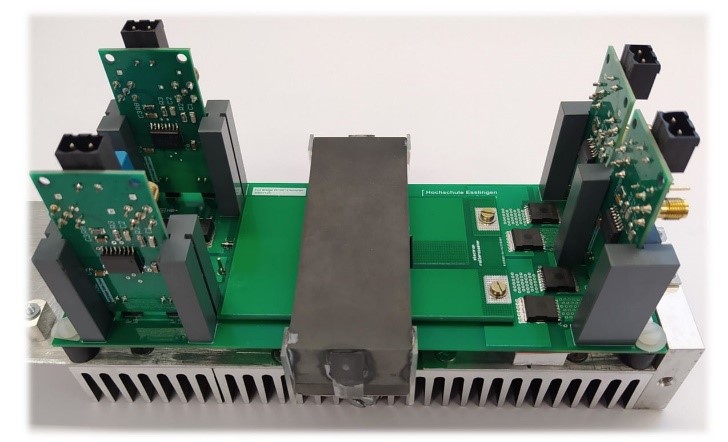Design of an EMC-optimised HV/LV DC-DC converter for electric vehicles

State of the Art
When designing DC/DC converters, the emphasis is usually on the power transmission, the thermal regulation, the control and the sensors. EMC filters are added into the circuit to comply with the EMC limits. This normally means that the background noise levels are accepted as inevitable, and then damped by means of large and expensive filtering equipment. As miniaturisation of the drive advances apace, the filtering equipment becomes ever larger and more and more expensive by comparison.
Research project
The fundamentals of how sources of interference arise in switched-mode power supplies are already known. The aim now is to discover how these interferences can be minimised by taking account of these sources of interference early on in the design phase of the DC/DC converter, or compensated by other measures and their propagation limited.
The measures being adopted include design improvements in the DC/DC converter and also the investigation of which interference suppression concepts in the isolated DC/DC converter topologies under consideration bring about the best results. All analytical approaches used are to be supported by simulation and the corresponding measurement results.
Principal researcher at Esslingen University:
Prof. Dr.-Ing. Martin Neuburger
Project duration:
02/2019 to 01/2022
Funding:
Ministry of Science and Culture
Collaboration partners:
FKFS - Universität Stuttgart
Robert Bosch GmbH
People to contact:
Prof. Dr.-Ing. Martin Neuburger
Further information about the project
Link to the Hybrid collaborative doctoral programme at Esslingen University
Interested? Find out more! about our degree programmes
Explore now and
find a course